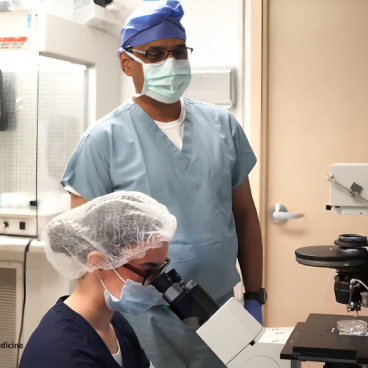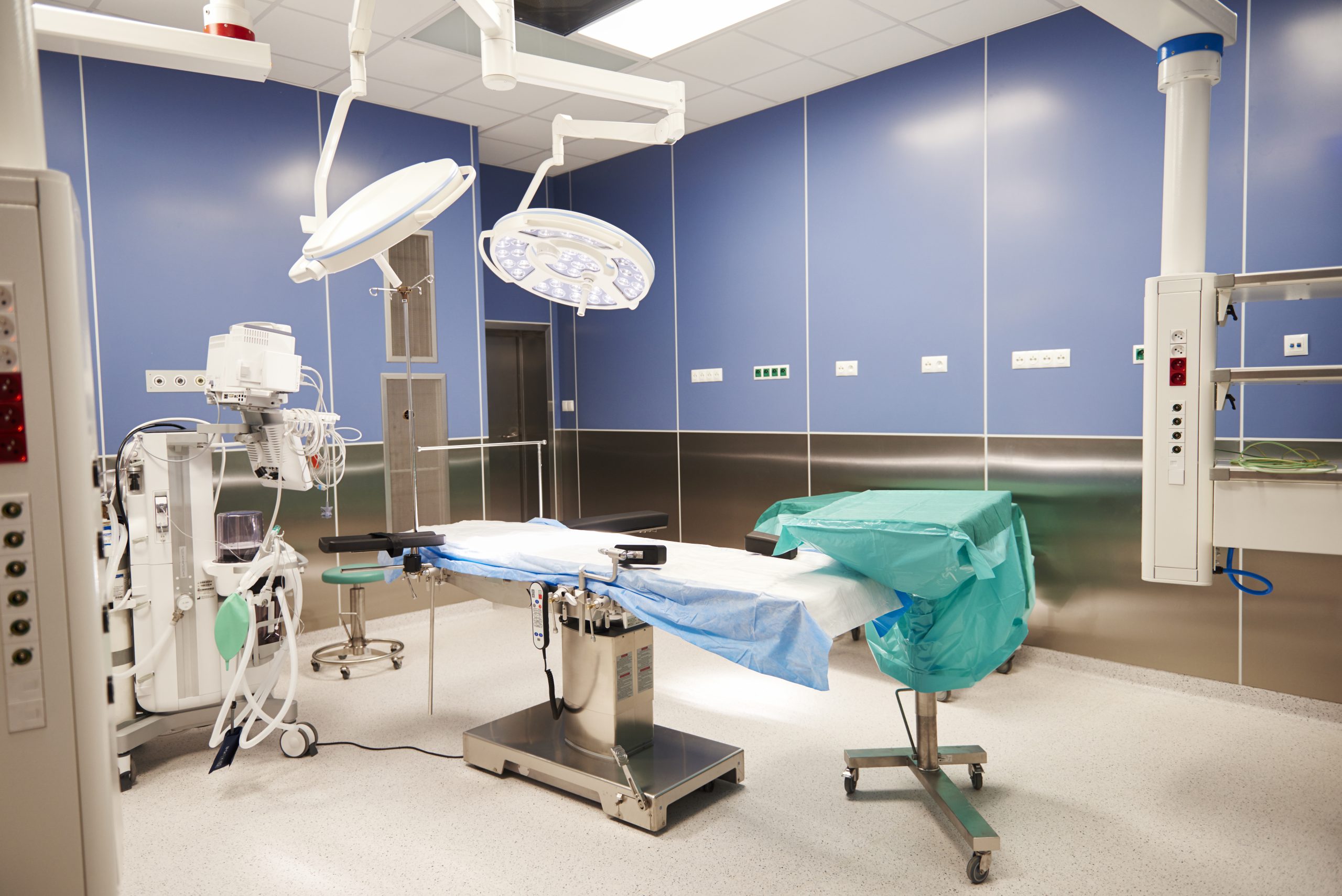
Endometriosis and Infertility
Up to 60 percent of women afflicted with infertility have endometriosis, which is why GoFertility (or CRMRS) and Dr. Saji Jacob are specialists at diagnosing and treating this potentially debilitating condition. Endometriosis occurs when the uterus’s lining grows outside the uterus, commonly on the ovaries, fallopian tubes, pelvis or outer surface of the uterus.
In rare cases, this unwanted growth can spread to distant parts of the body such as the lungs or brain. The tissue builds up over time and irritates surrounding tissue, which can cause scarring and inflammation.

Common Symptoms of Endometriosis
According to CDC data more than 11 percent of women between the ages of 15 and 44 have endometriosis. In some cases, patients have no symptoms and don’t realize they have endometriosis until they are unable to conceive. For patients who do have symptoms, the pain can be unbearable and significantly affect quality of living. Common symptoms of endometriosis are linked to menstrual cycles and include:
- Pelvic, stomach and lower back pain: Pelvic discomfort and cramping may begin prior to a period and last several days into a period.
- Pain during or after sexual intercourse
- Pain during urination or bowel movements before or during a period
- Excessive bleeding during periods or between period cycles
- Infertility: Many female patients discover they have endometriosis when they are unable to get pregnant
- Additional symptoms such as fatigue, nausea, diarrhea, constipation or bloating, usually before or during periods
Debilitating pelvic pain before and during menstrual cycles that is much worse than normal period discomfort is one of the most common endometriosis symptoms. While the exact cause of endometriosis is unknown, immune disorder is a likely culprit.
In all women, about 30 percent of blood and endometrial tissue goes through the fallopian tubes into the pelvis during the period. The body knows this blood and tissue is in the wrong place and will absorb the blood and eat away the tissue. By the end of the period, everything is cleaned out inside. This happens in all women every month.
In patients who develop endometriosis, their body is not able to take care of this blood and tissue in the pelvis. The endometrial tissue implants to whatever it can find, including ovaries, tubes, the back side of the uterus, bowel, bladder, etc. It grows and bleeds every period, causing a chronic

In all women, about 30 percent of blood and endometrial tissue goes through the fallopian tubes into the pelvis during the period. The body knows this blood and tissue is in the wrong place and will absorb the blood and eat away the tissue. By the end of the period, everything is cleaned out inside. This happens in all women every month.
In patients who develop endometriosis, their body is not able to take care of this blood and tissue in the pelvis. The endometrial tissue implants to whatever it can find, including ovaries, tubes, the back side of the uterus, bowel, bladder, etc. It grows and bleeds every period, causing a chronic inflammatory condition in the pelvis. Endometriosis negatively affects each of the four key elements of getting pregnant:
- It can grow on or inside the ovaries, causing destruction of eggs in the ovaries or preventing ovulation.
- It can grow inside and outside the fallopian tubes, which causes tubal occlusion or tubal dysfunction and carries risk factors.
- Endometriosis produces toxins which can affect the quality of eggs, embryos and even sperms in the male partner.
- Endometriosis alters the normal lining of the uterus, increasing the rate of miscarriage by at least 15 percent. These endometrial changes, called “stippling,” can be seen during a hysteroscopy procedure that is routinely done at CRMRS and takes just 10 minutes.
Going the Extra Mile to Properly Diagnose Endometriosis
With so many of our patients at GoFertility burdened by endometriosis, Dr. Jacob and his team of professionals have dedicated themselves to researching the condition so they can continue providing excellent patient care. Dr. Jacob is one of a select few dual board-certified OB/GYNs and high-complexity clinical lab directors in the country.

Paired with his expertise as a certified robotic surgeon, reproductive endocrinologist and infertility specialist, Dr. Jacob is uniquely positioned to treat advanced-stage endometriosis patients.
Dr. Jacob makes an endometriosis diagnosis based on a woman’s symptoms, testing hormonal levels, a pelvic exam, an ultrasound and potentially laparoscopy. Dr. Jacob administers the ultrasounds himself and not a technician. This is extremely rare, as an overwhelming majority of fertility specialists across the country do not conduct their own ultrasounds.
By Dr. Jacob going above and beyond and showing patients exactly what he sees — in real-time as patients view large TV monitors of the ultrasound — Dr. Jacob can instantly make real-time diagnoses. This fosters stronger conversations between Dr. Jacob and patients, while patients gain a significantly better understanding of the causes of their infertility.
World-Class Endometriosis Treatment
Once an endometriosis diagnosis is confirmed, Dr. Jacob performs minimally invasive robot-assisted surgery to remove all endometriosis lesions. An estimated 50 percent of lesions are colorless and sometimes missed during laparoscopy, which is why choosing a highly experienced robotic surgeon like Dr. Jacob is imperative. Dr. Jacob trains other doctors on how to perform gynecological robotic surgeries as a national proctor.
After surgery, patients are typically ready to begin in-vitro fertilization cycles to begin the process of having a baby. Additional steps may include the prescription of hormones, assisted reproductive treatments or periodic ultrasounds to monitor progress.
Patients who choose GoFertility are selecting one of the 50 best fertility clinics in America (Newsweek, 2023). Our pregnancy success rate per embryo transfer has bested the national average every year since 2011, and our skilled team and top-end equipment ensure you receive the outstanding care you deserve. Call us at 314-473-1285 or send an email to AGraham@GoFertility.com. We are always accepting new patients and can typically book an appointment within a week for you.